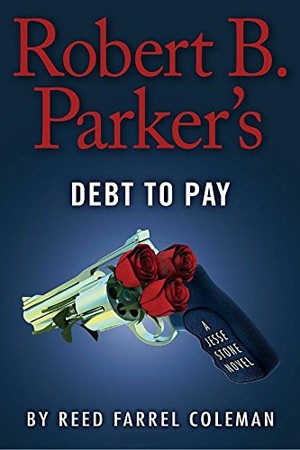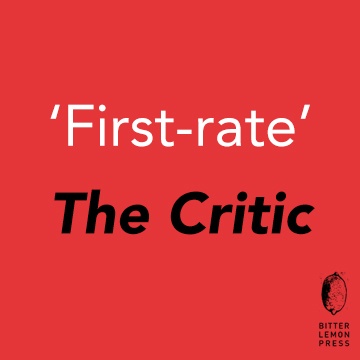
 Written by Reed Farrel Coleman – Robert B Parker may have passed away in 2010, but thanks to writers like Ace Atkins and now Reed Farrel Coleman, his classic characters and story styles live on through the Robert B Parker franchise. Much in the same way as Sophie Hannah is producing Poirot novels, and Max Allan Collins has carried on Mickey Spillane’s legacy by completing ‘lost’ Mike Hammer manuscripts, Coleman is putting his skills behind Parker’s character Jesse Stone. Ace Atkins, meanwhile, has been continuing the Spenser series.
Written by Reed Farrel Coleman – Robert B Parker may have passed away in 2010, but thanks to writers like Ace Atkins and now Reed Farrel Coleman, his classic characters and story styles live on through the Robert B Parker franchise. Much in the same way as Sophie Hannah is producing Poirot novels, and Max Allan Collins has carried on Mickey Spillane’s legacy by completing ‘lost’ Mike Hammer manuscripts, Coleman is putting his skills behind Parker’s character Jesse Stone. Ace Atkins, meanwhile, has been continuing the Spenser series.
Parker wrote nine Stone novels, firmly establishing the series and giving Coleman a solid base to work from. The character was a promising baseball player before a shoulder injury ended that career. He joined the LAPD and rose through the ranks becoming a detective in the elite Robbery-Homicide Division, but was asked to resign after his drinking spiralled out of control following his divorce from his wife Jenn. Stone relocated to Paradise, Massachusetts for a fresh start as chief of police in a much smaller force.
Debt to Pay begins in the present day and Stone is in a good place. He is popular within the town, and respected by his colleagues. He’s in a long term relationship with ex-FBI agent Diana Evans. Jenn lives in Dallas and is about to marry Texan oil millionaire Hale Hunsicker. Stone has even been invited to their wedding. He has his doubts about attending because his ex has a way of involving him in her dramas that always tests the limits of his sobriety. But for now, Stone’s drinking days seem to be behind him and the only mystery occupying him at work is some minor vandalism – somebody is shooting out the rear driver’s side tyres of cars around town.
All that changes when Stone is contacted by a Boston gangster called Vinnie Morris who has concerns about his boss’ death. Gino Fish has been found dead in his office alongside his assistant and lover. The Boston cops are calling it murder-suicide and Morris doesn’t believe them. Stone owed the crime family a favour after they helped prevent a notorious sadist and assassin, known only as Mister Peepers, from completing a hit. Now Morris is calling in his marker.
Peepers is indeed responsible for the murders of Gino and his assistant. He feels embarrassed at his failure to carry out the hit and blames Stone and those closest to him. The hitman is not someone who can put aside such a sleight, and has plotted a complicated revenge. The fist part was the Boston murders and his second is to goad Stone with thinly veiled threats to Jenn. What follows is a tightly plotted cat and mouse game which goes back and forth between Paradise and Dallas.
Stylistically, Parker wrote Spenser as an update of Marlowe, which made his failure with his efforts in finishing Raymond Chandler’s Poodle Springs such a surprise. The wisecracking and arch observations remained, but his world view was updated to recognise changes in society and included psychological insights and a feminist perspective – indeed, Spenser’s world is a much more inclusive one than Marlowe’s.
Stone is a different character to both of those famous private investigators, and Coleman writes him as more of an everyman, which suits his clear, simple prose. Coleman doesn’t build his characters through elegant prose or eye-catching displays of wit, but reveals them gradually through action, exposing steadily their moral choices.
What elevates Debt to Pay above (well–written) mainstream thriller status is the ending and the choices that Coleman makes for his character’s fates. There is a feeling that Coleman, who has a deserved reputation for writing at the more literary end of crime fiction, is pushing against the constraints of mainstream writing when he delivers a brutal, indeed bleak finale. People die, and they are not just minor characters and those that survive are damaged. It is more than enough for me to want to visit Paradise again, especially if Coleman is the guide.
Classics in September 2016 is sponsored by Bloomsbury Reader.
GP Puntam’s Sons
Print
£20.60
CFL Rating: 4 Stars










